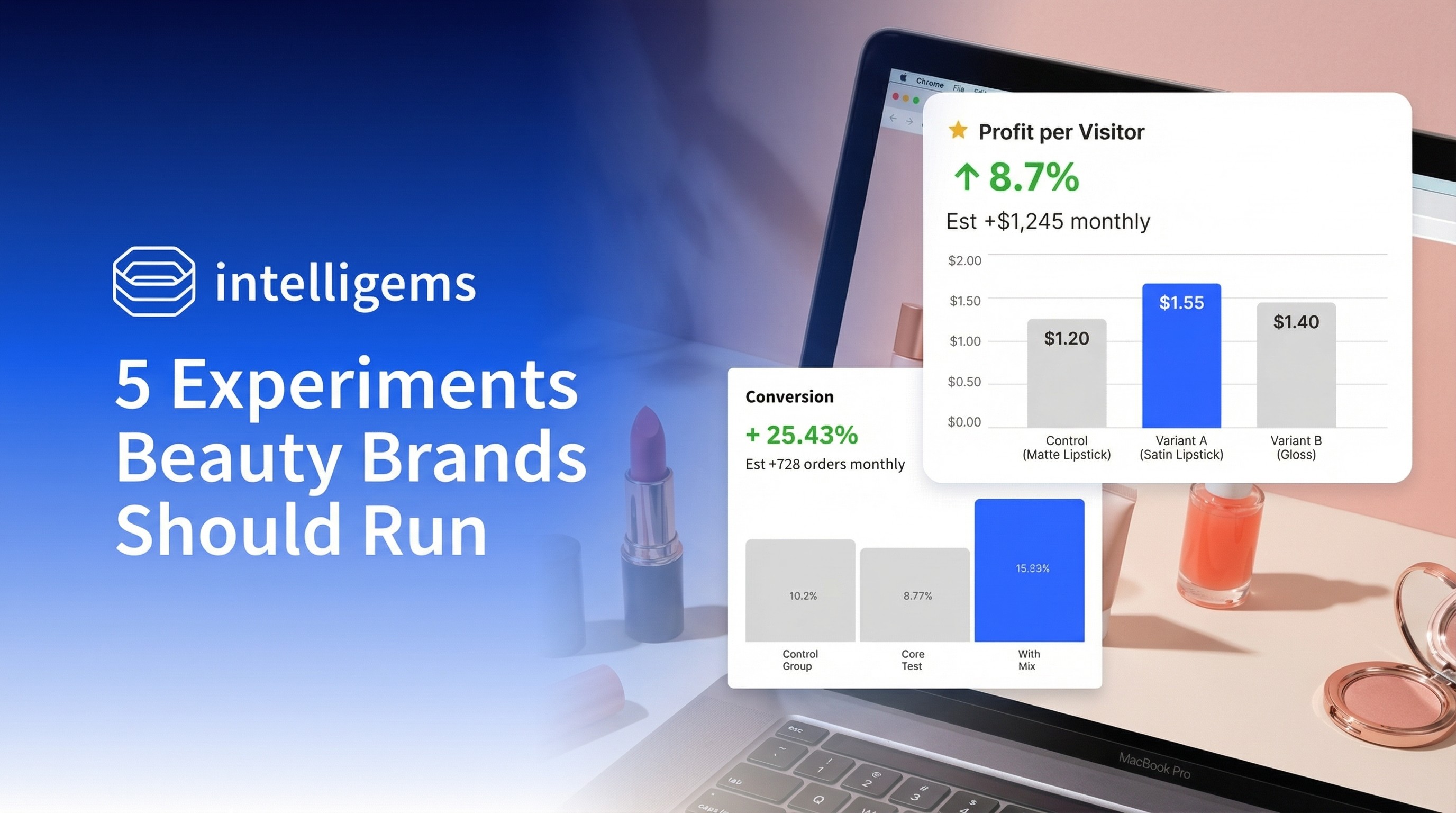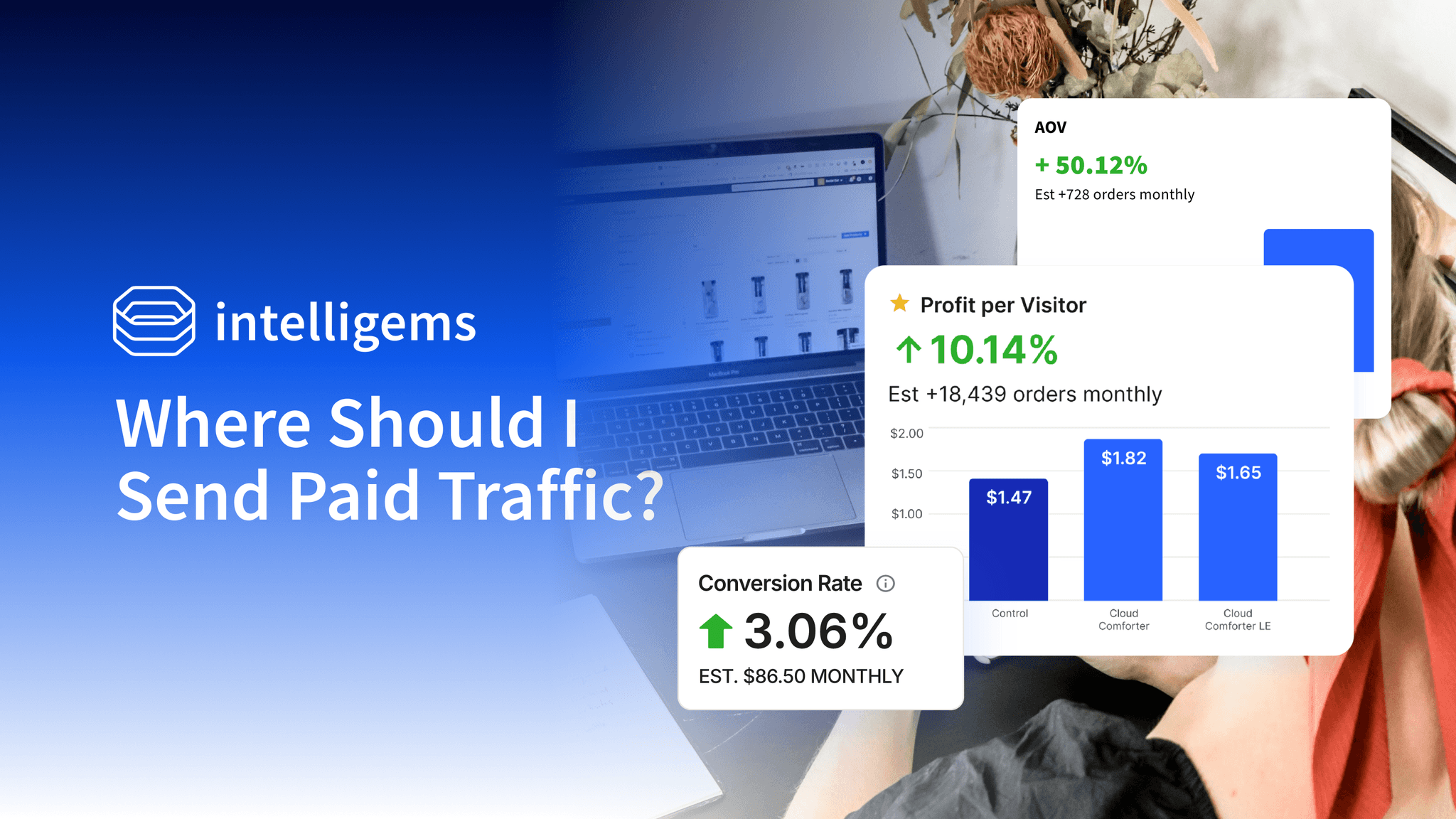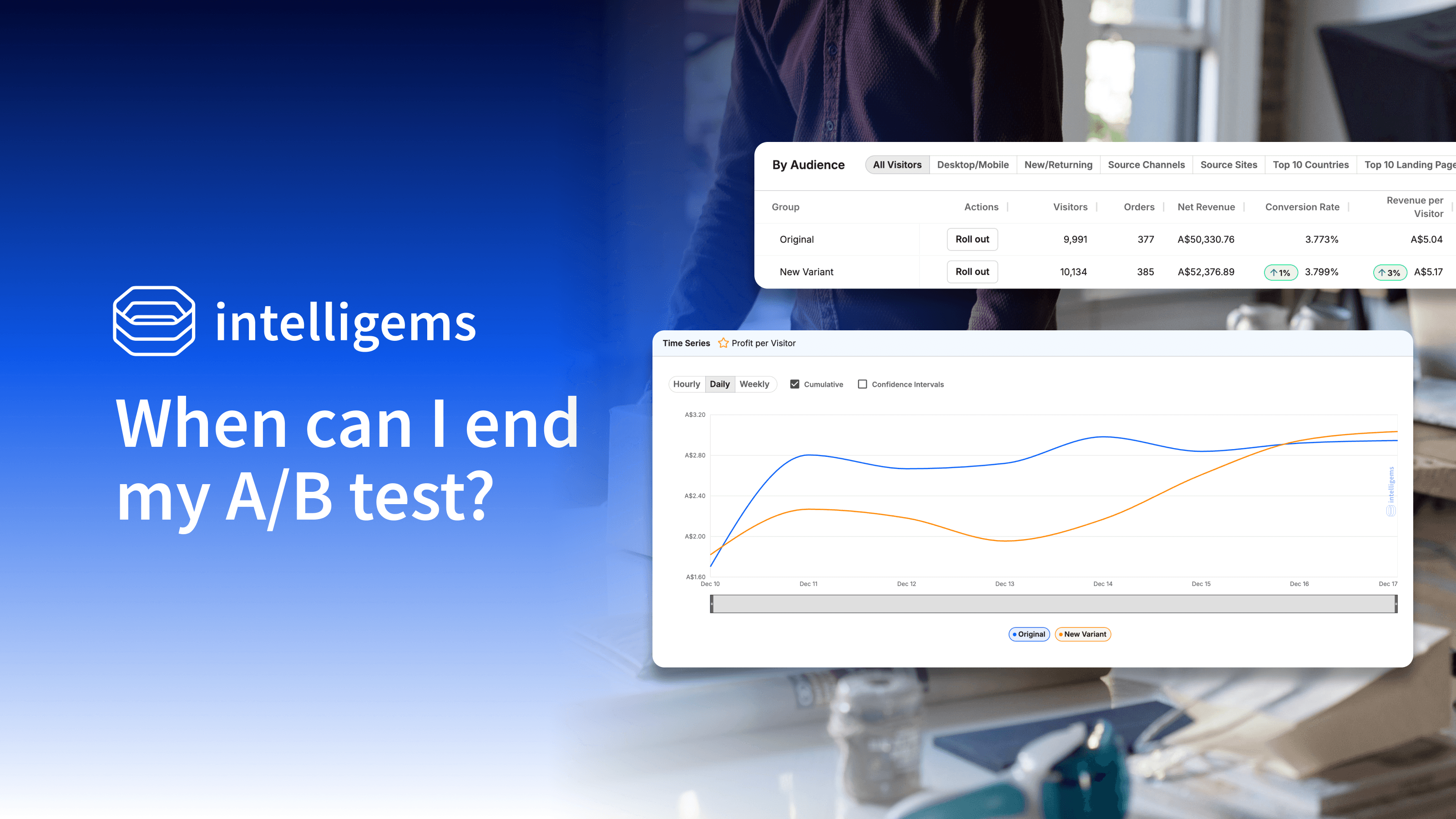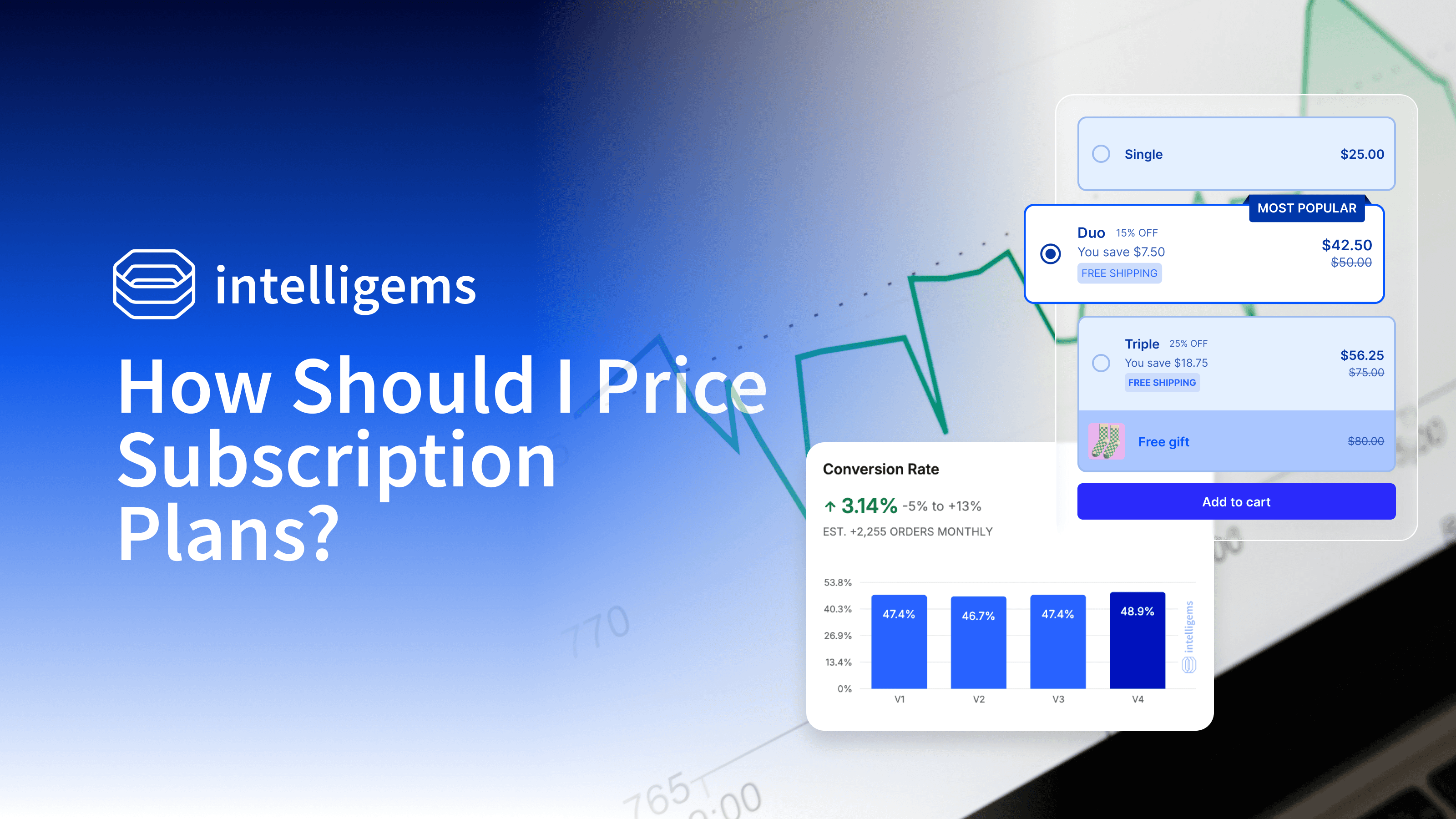AB Testing
Mar 29, 2024
Checkout Extensibility and AB Testing on your Shopify Store: What to Know
A Comprehensive Guide on a Seamless Transition to Checkout Extensibility & The Impact on A/B Testing

Drew Marconi
As Shopify merchants prepare for the transition to checkout extensibility and say goodbye to checkout.liquid and checkout scripts, understanding how these changes will impact your store, your existing functionality, and your AB testing program is crucial. As a Shopify partner, we are always keeping up with new features & changes—we wanted to share some info about what these changes mean for you, and how to ensure that your testing program remains seamless and effective! The bottom line is that not much will change for your Intelligems experience.
What is Checkout Extensibility?
Shopify is changing the underlying infrastructure of its checkout - including the checkout page, thank you page, and scripting capabilities - to make it more scalable and future proof. They are balancing a need to standardize across stores (this is incredibly core infrastructure for your ecommerce store! You don’t want things breaking or customers getting confused) with the desire to customize for the needs of individual merchants.
In the past, customizations were nearly unlimited - checkout.liquid allowed you to change nearly everything about how the pages looked, and checkout scripts let you build any logic you wanted about the cart. The tradeoff was that this could lead to instability - a rogue app or script in checkout.liquid could take down your checkout; your checkout script could start giving out free products by accident or get unpublished by accident.
With Checkout Extensibility, customizations are much more API driven and “on rails.” The goal is to provide the same level of customization, but in a more safe, controlled manner that produces more stability. When Shopify upgrades checkout, they know that all the customizations will work with the improvements.
This transition is happening in several phases, and it does mean that merchants (and apps!) will need to take new approaches to get things done. We also all need to understand transition timelines and differences in features to keep existing functionality running smoothly.
Timeline & Key Dates
In-Checkout Page: extensibility is already available for the in-checkout pages (info, shipping, payment pages). As a result, checkout.liquid is being deprecated and will no longer work for in-checkout pages on August 13, 2024. Brands may choose to stop using checkout.liquid ahead of this if they want to access extensibility features.
Post-Checkout pages (Thank You Page and Order Status page): extensibility is not yet rolled out quite yet, so brands can choose to continue to use checkout.liquid for now until Shopify releases a timeline.
Script Editor: The script editor app is no longer available for download from the Shopify app store, but will continue to work for Shopify Plus brands who already have access through August 28, 2025.
Shopify Functions: these functions will replace much of the functionality available in the script editor, and are being rolled out in phases with pretty frequent updates from Shopify. You can keep an eye on the API guide to keep an eye on what’s live, what’s in developer preview, and what’s up next.
Shopify is updating these dates at their upgrade guide here, bookmark that to get the latest info.
4 Implications for Split Testing
While extensibility opens up new possibilities, it also entails some adjustments to the tools and methods used for conducting split tests. The good news is that all the testing strategies you’ve come to rely on to drive improvements in your store will continue to thrive!
Let's explore the implications of split testing across various categories:
1. Content Tests Face Minimal Changes
Merchants will be able to continue running content split tests across their sites without issue.
The only limitation is that you will no longer be able to split test the look or feel of the checkout page specifically without the checkout.liquid file due to limitations imposed by Shopify's restrictions on third-party JavaScript.
2. Price Testing Becomes Easier
With the rollout of checkout extensibility, we will change the way we manipulate prices in the cart for both Shopify Plus merchants and Shopify Advanced, Shopify, and Shopify basic merchants. For Shopify Plus, we will be transitioning from using checkout scripts, and for non-Plus, we will be transitioning from using duplicate products.
We will be moving all merchants to the cart transform function, allowing us to dynamically change prices at checkout per test group. We’re excited about this change—this is a better overall experience for both you (the merchant) and your customers.
Moving to cart transform reduces risk by removing reliance on checkout scripts being published correctly or duplicate products being configured correctly.
Instead of applying a discount, we’re just changing the price directly, which means no pesky strike-throughs slipping through in unexpected places like ShopPay, or risk of showing a discount at checkout.
Requirements to Use Cart Transform Functions
There are a few requirements to move to using cart transform functions. To use transform, you need to be:
Using the Online Store sales channel or a Custom Storefront. Functions are not supported on other sales channels (e.g., apps like Tapcart)
Your store must not use any checkout.liquid customizations or features.
Your store must not use the following apps:
The legacy Recharge subscriptions app
There may be some limitations if you’re using checkout scripts to power other discounts, but moving off the script editor app is not required.
3. Shipping Tests Retain Core Functionality
The majority of shipping tests are unaffected and will continue to operate as usual using the Intelligems carrier rate.
In some cases, Intelligems has been able to create custom shipping tests relying on checkout scripts—we may no longer be able to support these custom shipping tests for stores that are depreciating the script editor app (not required by Shopify until 2025).
4. Campaign Tests Will Leverage Functions
Similar to price testing, campaign tests (tests on offers and discounts powered by Intelligems campaigns) will leverage Shopify Functions to apply discounts in the cart.
If you are still using checkout scripts to power other discounts, there may be limitations in how our discount functions can apply discounts and how many discounts you can have.
How to Ensure a Seamless Transition
As merchants prepare for the deprecation of checkout.liquid and embrace the era of checkout extensibility, it's essential to prioritize ensuring that your testing and optimization efforts can continue full steam ahead.
The TLDR;
You’ll be able to continue leveraging Intelligems for all of your split tests.
We will continue to receive accurate data on conversion events, regardless of the change.
We will be transitioning price and campaign tests to the use of the cart transform function.
Product Updates
AB Testing
Ecommerce Strategy







